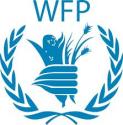WFP

WFP is the United Nations’ agency mandated with providing food assistance to (i) support economic and social development; (ii) meet emergency food needs; and (iii) promote world food security. The World Food Programme was jointly established by the United Nations and the Food and Agriculture Organization (FAO) of the United Nations in 1961 and was made operational in 1963. According to Art. VIII of WFP's General Regulations, WFP is an autonomous joint subsidiary programme of the United Nations and FAO, and accordingly, WFP has legal capacity to enter into contractual arrangements with a range of entities further specified in Art. VIII No.2 (a) of the General Regulations.
WFP identifies climate variability and change as one of the emerging challenges to ensuring food security in the most vulnerable communities. WFP is therefore working closely with key institutions to identify climate-related risks and vulnerabilities, and develop tools and services that can be used to better inform decision-making. WFP is highly active in numerous international climate service-related activities, including:
- WMO’s key strategic activities to develop the GFCS: WFP has been an active contributor to the GFCS, and is currently involved in guiding the strategy for the implementation of the user interface platform (UIP) of the GFCS through active participation in the process;
- Climate Services Partnership (CSP): WFP participated in the First International Conference on Climate Services in October 2011 which led to the creation of the CSP, and has a seat on the Core Group, and all of the sub-groups of the CSP, including the Economic Valuation of Climate Services Working Group created under the CSP.



